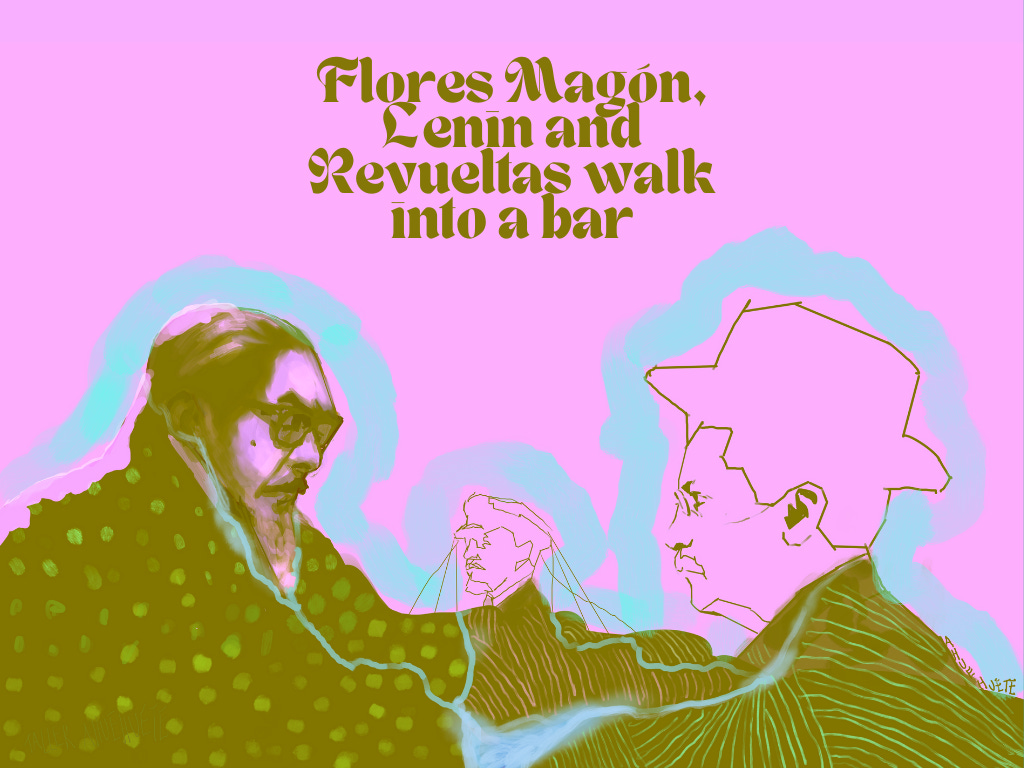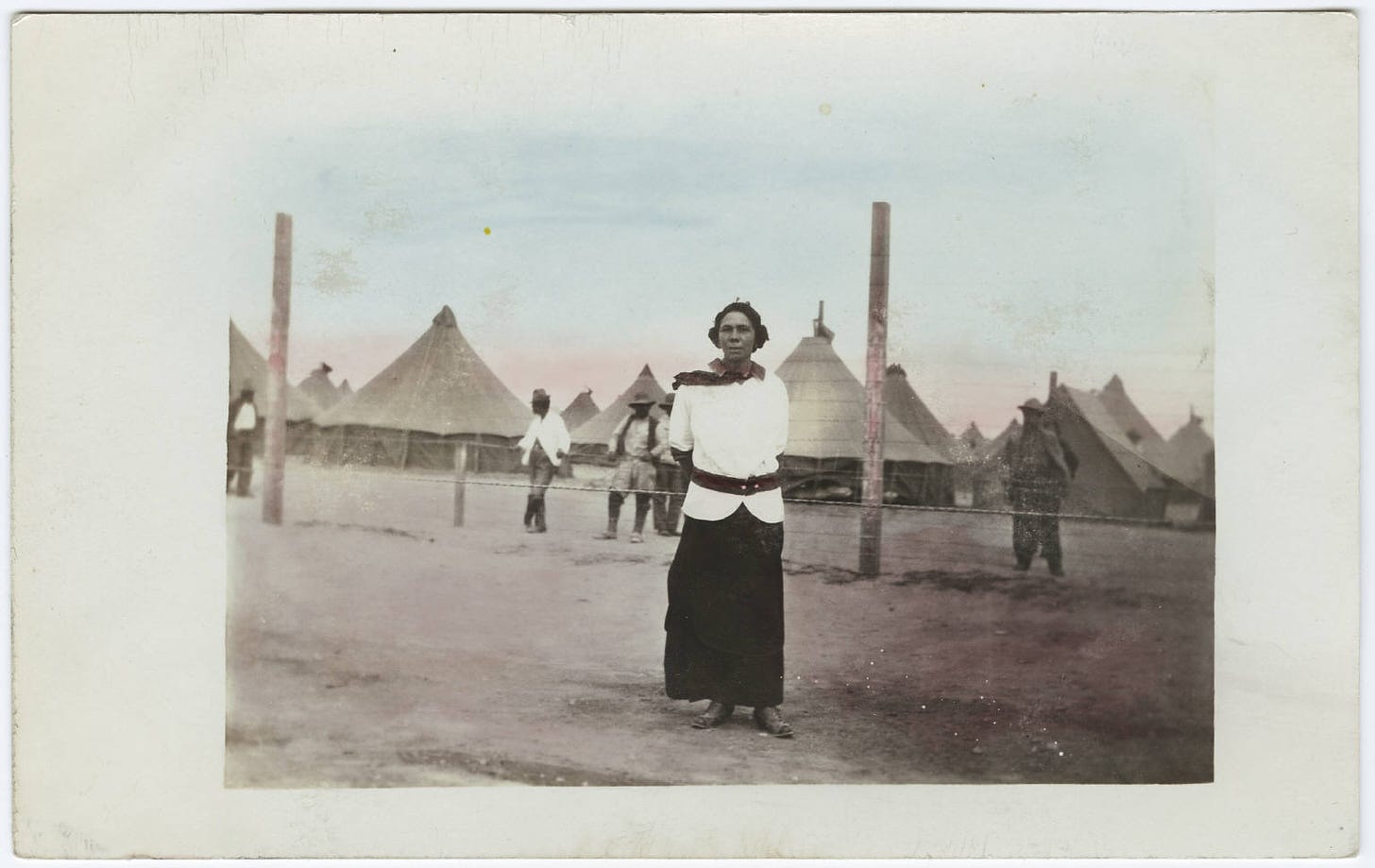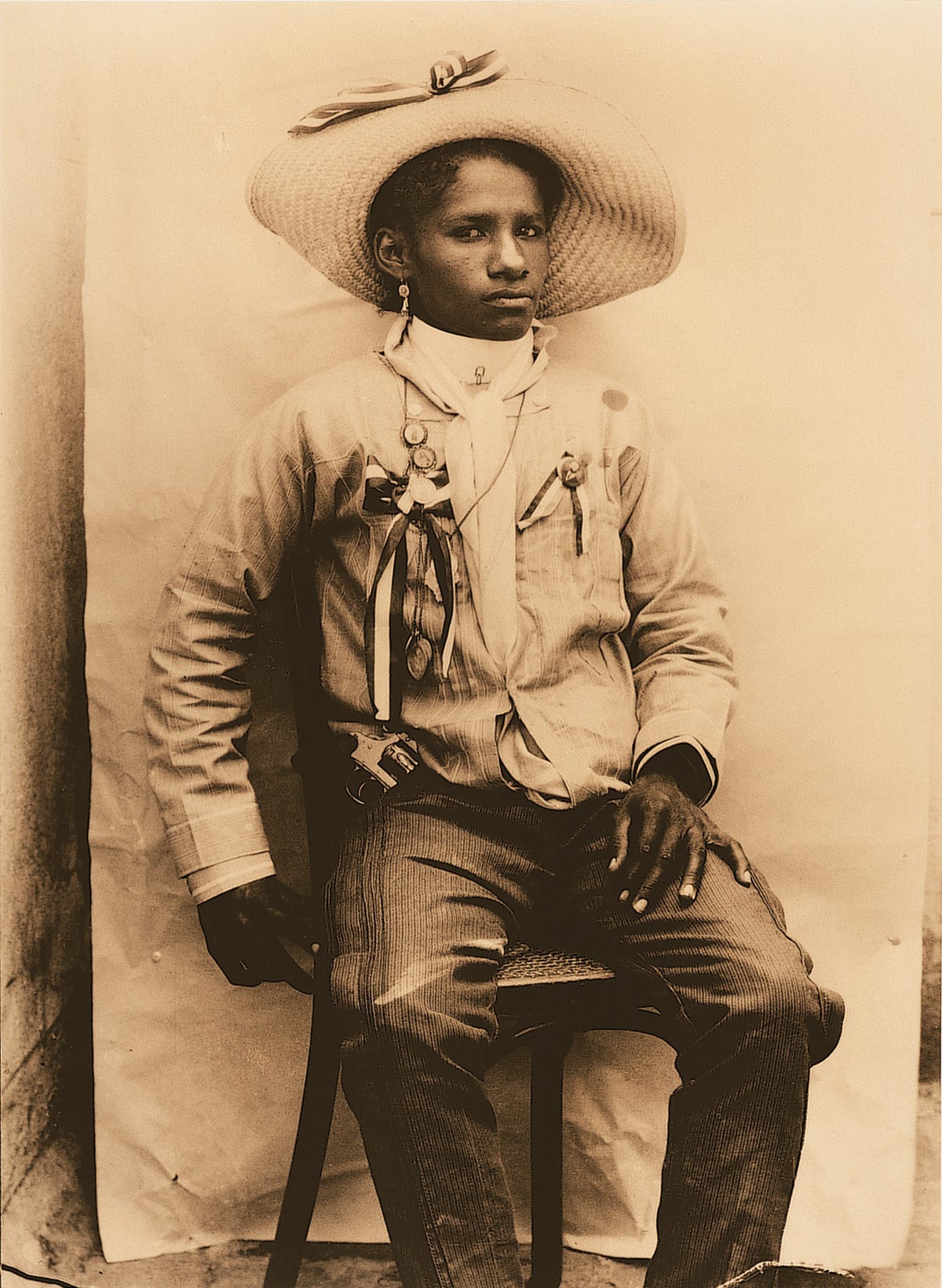Flores Magón, Lenin and Revueltas walk into a bar
Introduction to José Revueltas' Essay About a Headless Proletariat (1962)
«How quickly time passes, and how the fortunes of people change, except mine! My comrades of that time are now generals, governors, secretaries of state, and some of them have even been presidents of Mexico.
They are rich, famous and powerful, while I am poor, gloomy, sick, almost blind, with a number for a name, marked as a felon, rotting among this human flock, whose crime was to have been so ignorant and so unwise to have stolen a loaf of bread, while it is a virtue to steal millions.
But my former comrades are practical men, while I am only a dreamer, and, therefore, it is my own fault.
They have been the ant and I the cicada; while they have counted dollars, I have spent time counting the stars.
I wanted to make a human being out of every human beast; they, more pragmatic, have made an animal out of every human being, and have made themselves shepherds of the flock. However, I would rather be a dreamer than a practical man.
With my best wishes of universal comradeship, I remain your brother»
– Ricardo Flores Magón, October 30th, 1920. Oakland, California.
Lenin, Magón, Revueltas
Some positions appear irreconcilable — that is, if one is fooled by what appears and rather isn’t, except on the surface, the apparent. Once this interconnection is grasped, all theoretical belief in the permanent need of the existing conditions collapses.
We hear an echo, clamoring: it is absolutely in the interest of the ruling classes to perpetuate a senseless confusion.
Flores Magón, Revueltas and Lenin are an odd cast. José Revueltas, who the State imprisoned on multiple occasions, attributing to him the authorship1 of the 1968 student movement, joined the Mexican Communist Party in 1928. Nevertheless, he was expelled in 1943 for his critique of their bureaucratic, democratic-bourgeois practices.
His “Essay About a Headless Proletariat” took the gloves off while describing the inconsistent, dogmatic, and often self-serving attitudes of the vanguardist approach in the Mexican left. Revueltas was not afraid of calling out the perpetrators of the corrupt efforts by name, despite many of them once close friends.
We present an excerpt from the ex-communicated pen — Revueltas, the Leninist, the fervent believer, the unrelenting skeptic; the heterodox, the devout, the contradiction. Revueltas, always torn between tendencies. Despite his desire for dogma, the party — whether it was the PCM, or the Liga Espartaco, founded by himself, and of which he was too expelled2 — kept manifesting, to his eyes, continuously, hostile to individual freedom.
Revueltas admitted frequently, "a critical spirit does not submit to the herd of any ideology3". Likewise, "the suppression of freedom is the most serious crime that can be committed in a class society". According to Revueltas, a society "without freedom, is pure bestiality4". Revueltas, who had been deprived of his freedom several times, knew this very well. And he knew that freedom was threatened not exclusively by the bloodthirsty regimes of capital — reigning our era — but rather, this characteristic was not foreign among the authoritarian wolves in sheep's clothing. Concerning autonomy, Revueltas affirmed:
«freedom must be unrestricted in a socialist or capitalist regime.
We have to rescue the heterogeneous, who is completely threatened by a regime of production, of technique, which invades the individuality of each person, in some countries as in others. We have to be alert concerning that unrestricted freedom that must exist because freedom is not licentiousness»
In another interview, he acknowledged:
«The intentions to create the party of the working class have suffered a continuous failure. We have struggled in that direction for more than twenty years and we have failed. Now we have to look for new routes.»
Revueltas, nevertheless, lived and died a Leninist5. For this, we present to you this bricolage, an excerpt from his “Essay About a Headless Proletariat” — to our knowledge not available in English6, thus translated, perhaps clumsily, for the first time. The selected excerpt might appear to the orthodox — and orthodoxy is not solely limited to Marxism — as a peculiar fever dream, if exposed to the documentation, and the reflections of Revueltas’ cunning pen.
Lenin, and the anarchist Ricardo Flores Magón, in agreement? Was Magón not an anarchist? Why would he ever write favorably about a proponent of the dictatorship of the proletarian?
Do not be fooled by the exoteric, as we reminded you in the opening paragraph. Flores Magón was an anarchist, through and through7. So, you might be wondering, how were these views reconciled by the Mazatec anarchist? Was it a moment of weakness?
Ricardo Flores Magón was a man committed to his word, to his convictions. We shine light to an incident: at the request of the Mexican Chamber of Deputies, the State was allowed to grant alimony to Ricardo and his comrade, Librado Rivera, which would last as long as both remained in jail abroad in the United States.
Weak, ill, hungry, almost blind, while facing the offer, Ricardo8 Flores Magón responded:
«I do not believe in the State; I support the abolition of international frontiers; I fight for the universal fellowship of humankind; I consider the State as an institution created by capitalism to guarantee the exploitation and subjugation of the masses.
Therefore, all money obtained by the State represents the sweat, anguish, and sacrifice of the workers. If the money came directly from the workers, I would gladly, and even proudly, accept it, because they are my brothers. But coming from the intervention of the State, after having been demanded —according to my conviction — from the people, it is money that would burn my hands, and fill my heart with remorse.»
Preparing for Christmas 1920, on December 6th of that year, the U.S. Department of Justice proposed to discharge Ricardo Flores Magón on the condition of signature on a petition for forgiveness and repentance of his ideals. Flores Magón flatly refused to ask for forgiveness. In a series of letters addressed to Nicolás T. Bernal, Ellen White and Gus Teltsch, Ricardo reinforced his ideals by flatly refusing to repent.
«At the Justice Department, Mr. Weinberger was told that nothing can be done in my favor if I do not make a request for pardon. This seals my fate; I will be blind, and rot and die inside these horrendous walls that separate me from the rest of the world, because I will not ask for pardon. I will not do it!
In my twenty-nine years of fighting for our freedom I have lost everything, and every opportunity to become affluent and famous; I have consumed many years of my life in prisons; I have experienced the path of the vagabond and the outcast; I have found myself fainting from hunger; my life has been in danger many times; I have lost my health; in short, I have lost everything, except one thing.
One thing only, which I foster, pamper and preserve almost with burning rage; and that thing is my honor as a fighter…
[…] To ask for forgiveness would mean that I abdicate my anarchist, anti-statism ideals; and I do not retract them.
I affirm that if the human species ever comes to enjoy true fraternity and autonomy, and communal justice, it must be by means of anarchism.
Thus, my dear Nicholas, I am condemned to blindness and death in prison; but I prefer this to turning my back on the workers, and having the prison doors open at the price of my shame.
I shall not survive my captivity, for I am already old; but when I die, my friends will perhaps inscribe on my grave, "Here lies a dreamer," and my enemies, "Here lies a lunatic."
But there will be no one who will dare to stamp this inscription:
Here lies a coward and traitor to his ideas…"»
With this brief prelude, we present Revueltas’ fragments from “Essay About a Headless Proletariat”, as clumsily translated by the equally headless, equally disembodied spectrums of the taller ahuehuete.
Revueltas, an avid reader of Lenin, was able to find — and even praise — the character of the anarchist, encountering in his struggle valuable contributions. And, for his part, the defender of land and liberty, the anarchist Ricardo, found "that the Bolsheviks understood long ago that the revolution, although of a political character at first, must become economic and social, and that this latter character has nothing to do with differences of race or national frontiers, and therefore, the future of our revolution must be international."
If, in the face of their contrasting, and contending stances9, both Revueltas and Magón10 were able to recognize redeemable features in other entities across the polar opposite political spectrum, what will be made apparent, and consequently undeniable, in the revolutionary panorama, upon reaching some understanding of the traits that by a shared priority, sharpened the eyesight of these two figures? What lessons does history have in store for us? What potential contradiction might be reconciled?
We continue to believe that the day will come when anti-authoritarian factions will cease to defer their scriptural affinities to their papal figures, and instead look inward, which may point them around them, then outward, toward often adversarial sources. The same can be said of the Marxist blood in the veins of many, in the midst of the alchemical frenzy that exegesis brings. One day, from the depth of Faust’s study, they will remember that they are dealing, in fact, with matter, with the material, and that it must be treated with urgency. Every day the sun rises, and with it dawns hunger, forced migrations, misery, exploitation, plundering, the destruction of the earth, violence, pain and war.
If one day we manage to expand our perspective beyond the atomization of individual identification with a tendency, and focus on the weaving of a fabric conformed by transcultural solidarity, we will collectively devise and enact the stab pointing to the heart of the hydra, where the metamorphic value-form resides once and for all. And the chants of land and freedom will no longer be utopian echoes, nor promises of the hereafter.
«This antagonism is artificially kept alive and intensified by the press, the pulpit, the comic papers, in short, by all the means at the disposal of the ruling classes. This antagonism is the secret of the impotence of the […] working class, despite its organization. It is the secret by which the capitalist class maintains its power. And the latter is quite aware of this.
But the evil does not stop here. It continues across the ocean…»
— Karl Marx
Read “Essay about a Headless Proletariat (1962)”, excerpt11 by José Revueltas.






